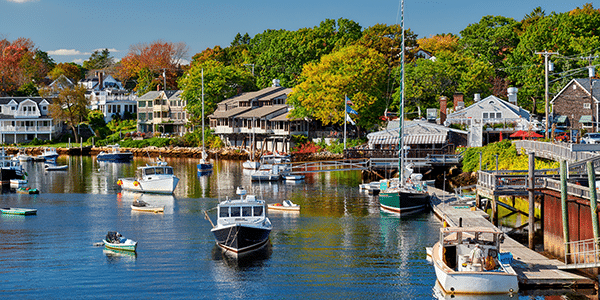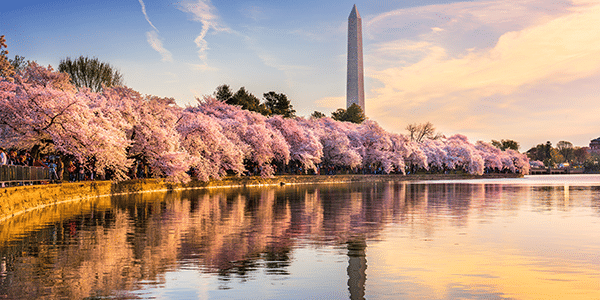Depending on where you live, your state’s average credit score could be almost 100 points higher than in other states.
Having good credit gives you options, and that’s especially important in the unusual times we live in right now. The demand to refinance — both homes and vehicles — is high.
RateGenius recently released the State of Auto Refinance report, an analysis of over half a million auto refinance applications through 2020. Among our data, we found that 17% more borrowers refinanced their auto loans last year compared to 2019. With the pandemic not slowing down anytime soon and record low rates, chances are you may be considering refinancing your car loan too.
But in order to get the best deal, you’ll need good credit.
What Does It Take To Refinance Your Car Loan?
Most people can refinance their car loan. But if you’re looking to get the most out of it, you’ll need a couple of things: steady income and a good credit score. With these two most important pieces in hand, you can qualify for the best auto loan rates.
What affects your credit score?
Your credit score is made up of five main factors, each of which is weighted differently:
- Payment history: 35%. This is the track record of whether you’ve consistently made payments on time.
- Amounts owed: 30%. This considers how much you owe on your debts compared with their original balances, or your credit line.
- Length of credit history: 15%. This factors in how long your accounts have been listed on your credit report.
- New credit: 10%. If creditors check your credit before approving you for a new loan or credit card, it could temporarily drop your credit score.
- Credit mix: 10%. This looks at how many different types of loans and credit you can manage responsibly.
Why do credit scores vary by state?
Each factor listed above is influenced by your financial status. For example, if you have money in savings and earn a good income, you’re less likely to make late payments, which means you’re more likely to have a good credit score.
Your financial status in turn depends on other factors, too. In general, the older people get, the more financially secure they become, and the higher their credit scores. If your local economy is doing good or you have a good social safety net, you’re also more likely to have a better credit score because your financial situation is better.
These factors can vary by region. If your state’s population skews older, for example, it’s more likely that the people around you have a better credit score. If your state’s economy is going through hard times, that can cause your neighbor’s credit scores to dip. That’s why credit scores can vary depending on the state.
10 States With the Best Credit Scores
When you look at everyone who applied to refinance an auto loan between January 1, 2019, and October 31, 2020, it’s clear that residents of certain states are much more well-off credit-wise than your average citizen. Here are the states with the 10 best credit scores, on average:
10. Minnesota: 733

- The highest average credit score of approved applicants in any city in the state was St. Paul, at 736.
- Residents are more highly educated, with 93% of adults over age 25 having at least a high school diploma, compared with 88% of the general U.S. population.
9. Arkansas: 733

- People who live in Arkansas tend to be older, with 17.4% of the population over age 65 (as opposed to 16.5% across the entire U.S.).
- Almost half of all the rice — a staple crop — grown in the U.S. comes from Arkansas.
8. New Hampshire: 734

- Auto refinance borrowers saved an average of 48% more in 2020 compared with 2019.
- The average New Hampshire family earns an annual income of $76,768 — almost $14,000 more than in the rest of the United States.
7. Delaware: 734

- Residents in Delaware were less keen to refinance auto loans than previously; the number of auto loan refinance applications was down by 21% in 2020 compared to the year before.
- Delaware attracts many people from neighboring urban areas looking for refuge with abundant nature, a low tax environment, and a slower pace of living.
6. Connecticut: 737

- Borrowers in Middletown, Connecticut, had some of the lowest auto loan balances of any city in the U.S., at under $17,000.
- A strong job market features the headquarters of 14 of the companies on the Fortune 500 list, including Cigna, Hartford Financial Services, and Xerox.
5. Rhode Island: 737

- The number of working-age people (those under 65) without insurance is almost half of the rest of the U.S. combined (4.8% vs. 9.5%) — an important factor in an era of rising healthcare costs.
- The percentage of the population composed of Baby Boomers in Rhode Island is just over one percent higher than in the rest of the United States.
4. Montana: 738

- The average Montana resident saved $1,306 after refinancing their auto loan in 2020.
- Interestingly, despite having a great average credit score, Montana residents earn $7,873 less and have a 2.1% higher poverty rate compared with the entire U.S.
3. New Jersey: 740

- Economic opportunities are strong due to the many lucrative industries present in the state, which is “within a day’s drive of 40% of the U.S. population,” according to the state government.
- There are 52 colleges and universities packed into this tiny footprint, including world-renowned institutions like Princeton University, Rutgers University, New Jersey Institute of Technology, and more.
2. Vermont: 744

- One out of every five residents of Vermont is a Baby Boomer; that’s a lot higher than the general U.S. population at 16.5%.
- Seven out of every 10 residents of Vermont own their own home (it’s 64% in the rest of the country), which can indicate a more stable financial situation and a higher credit score.
Tied for 1. South Dakota: 751

- Agriculture is responsible for 20% of the state’s economic activity and employs over 80,000 residents of South Dakota.
- Despite having a great credit score, the average South Dakotan earns $4,568 less than the average U.S. resident over the course of a year.
Tied for 1. Maine: 751

- Together with Vermont and Delaware, residents of Maine received the lowest interest rates on their auto loan refinance (4.4%).
- The state government of Maine has put forth a bold new plan to attract 75,000 new people to the state over the next 10 years and to increase the income of each worker by $10,000.


10 States With the Worst Credit Scores
The pandemic has hit everyone hard, but residents in some states are having a particularly hard time building their credit scores:
10. Texas: 651

- Residents of Odessa had two claims to fame: they had the highest average auto loan balance of any city in the county ($31,000), but also saved the most from refinancing ($1,759 per year).
- Twice as many working-age (under 65) Texans lack health insurance compared to the entire U.S. combined.
9. Alabama: 648

- Residents of Alabama saw a 6.1% interest rate reduction on their auto refinance loans, on average.
- People who live in Alabama graduate high school at about the same rate as the entire U.S., but they tend to drop off from completing college degrees — just 25.5% of Alabamians have a degree, versus 32.1% of the rest of the U.S.
8. South Carolina: 648

- Agriculture and forestry are two of South Carolina’s top industries, with the state being known for its high poultry production.
- Residents of South Carolina were slightly less inclined to refinance their auto loans, with 1.1% fewer applicants in 2020 compared with 2019.
7. New Mexico: 647

- Poverty rates are almost twice as high in New Mexico than in the general U.S. (18.2% vs. 10.5%).
- The median household income is $13,089 less in New Mexico than in the general population.
6. Oklahoma: 645

- People who were approved for auto refinance loans in Oklahoma City had the lowest credit scores on average of any city in the country, at 692.
- Some cities in Oklahoma, such as Stillwater, are actively recruiting people to move there by offering an incentive of up to $7,500.
5. Nevada: 644

- Borrowers in Nevada reduced their interest rates by 6.2%, on average, when refinancing an auto loan.
- Las Vegas is booming in population growth at over twice the rate of the rest of the country.
4. Hawaii: 640

- Aloha state residents saw the least benefit to refinancing their auto loan in 2020 compared to years before, with a 34% reduction in savings compared to 2019 (even then, residents still saved $1,337 on average).
- The cost of living in Hawaii is the highest in the nation, forcing so many people to move away that the state has actually seen a net decline in population size in recent years.
3. Tennessee: 638

- Forty-two percent more Tennessee residents applied to refinance their auto loan in 2020 compared with 2019.
- More high-income earners (over $150,000) left Tennessee than moved to the state in 2020.
2. District of Columbia: 636

- More people are renters (58.4%) than homeowners (41.6%) in D.C. — a stark contrast to the rest of the country where the homeownership rate is the higher number at 64%.
- Despite having a median income that’s $23,577 higher in D.C., the poverty rate is also 3% higher compared with the general U.S. population.
1. Mississippi: 633

- The highest poverty rate in the country is in Mississippi, at 19.6%.
- Agriculture is the top industry in Mississippi, with poultry, cotton, soybean, and catfish ranking as the top products.
Final Thoughts
Regardless of which state you personally live in, it doesn’t guarantee that you’ll have a great credit score or be doomed to a poor credit score. There may be factors that are outside your control that could affect your credit score, but there are always things you can work on to improve your credit score.
About The Author
RateGenius
A better way to refinance your auto loan. RateGenius works with 150+ lenders nationwide to help you save money on your car payments. Since 1999, we've helped customers find the most competitive interest rate to refinance their loans on cars, trucks, and SUVs. www.rategenius.com
;)
























